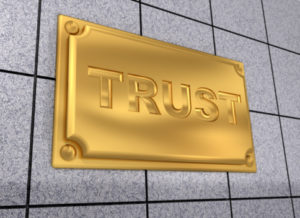Relationship Advice Tips from Dr. Jeanette Raymond, Ph.D.
A month into a pact that 37 year old cosmetologist Katrina made with 39 year old Roger to quit drinking and attend AA meetings, she found an empty liquor bottle in the outside trash can while she was clearing stuff out. Breathless with fury about his lies and his lack of trustworthiness she waited for him to come home from his job at the property management company. She was ready to confront him with the bottle and make him admit and atone for his transgression towards her and their relationship.
“You’ve been drinking again, haven’t you?” Katrina scolded.
“No, I haven’t!”
“Don’t lie. I found this bottle in the trash. It’s the brand you drink, so don’t lie.” Katrina challenged him with a voice oozing with disgust and contempt.
“Stop accusing me of stuff. You’ve got no proof. You jump to conclusions without even asking me.” Roger yelled back in an affronted tone.
“We’ve been here before. You’re always promising to stop drinking and go to AA but you never do. You’re just a junkie. If it’s not booze then it’s pot or something else. I’m sick of your lies and empty promises.”
“You’re no angel! You keep saying you are going to go to Over Eaters Anonymous but you still binge and purge and you haven’t been to a single meeting.”
Lack of trust created an escalating conflict with accusations and counter accusations the only form of communication in the relationship
The tit for tat exchange that night reached a crescendo in the next couple of days. They looked at each other with daggers in their eyes, each threatening to call the other out and hold them to account.
Neither of them had any trust in each other, and anticipated the worst when they dealt with transgressions of behavior that impinged on the relationship. Katrina and Roger were both eagle eyed when it came to checking up on their partner’s promises and actions, expecting the worst and focusing on it when it happened. They were so busy looking for ways in which they were being let down that they lost faith and belief in each other –spelling doom for the future of the relationship.
Low levels of trust in your partner creates a bias towards remembering the past as worse than it actually was.
Research reported in the Journal of Personality and Social Psychology, 2013, indicates that when a partner was already low on trust within the couple relationship, they were more likely to remember past transgressions as more severe and damaging than originally experienced and reported.
So when Katrina felt betrayed by Roger apparently drinking again, not only was it a slight against her, but she remembered all his past bouts of substance abuse, lying, and breaking promises as more serious and more painful than they had originally felt.
When Roger felt accused and admonished for his transgressions he also recalled Katrina’s past failures and slights against him as more significant than before – because he too was coming from a base line of low trust in his partner.
How to trust in relationships is the key question that determines the strength of the bond
The same research found that members of a couple who started off with high trust towards their partners recalled past transgressions with less bitterness and seriousness. Their trusting bias benefited the relationship by allowing for mistakes and flaws while focusing on the connection between them. The bad memories took their place in the background, whereas for people like Katrina and Roger the past infractions became center stage whipping up anger and contempt, and so destroying the relationship.
Why do Katrina and Roger have such a low trust base in their relationship?
Katrina grew up with a father who drank, constantly broke promises and defended himself against his family who got angry at him for letting them down. She learned to be vigilant about men who drink and profess love but then fail to show commitment. Roger was like her dad and she reacted accordingly, but this time as an angry adult rather than a frightened and disappointed child.
Roger was brought up by a mother who criticized him unmercifully. She never let up no matter how hard he tried or what he achieved. He learned to feel inadequate and started to numb himself with substances to get through life. Katrina’s scolding was familiar but now he could react by slinging mud her way and rebelling against her, instead of silently scuttling away from the sharp tongue as he did when he was a child.
Learning how to trust in relationships can save Katrina’s and Roger’s relationship
The most helpful strategy for both Roger and Katrina to follow is to train their minds to look for positive signs of love, loyalty and commitment in one another. Each morning, afternoon, evening and night –perhaps at meal times, both of them should independently go back over the last 3-4 hours and select one sign of healthy relationship behavior that their partner engaged in. It could be as minor as getting a coffee for each other, saving the last cookie for the other, asking about their days, or something bigger like sharing a decision, watching the same program together, or taking care of one another when they are sick. Then they should acknowledge it by sharing their observation with their partner.
These good moments will register and soon compete and overtake the bad memories. The relationship will get stronger as it gets grounded in trust. The bad times won’t seem so bad and the good times will echo loving and secure feelings. Processing the hurt and childhood traumas in individual therapy will oil the wheels for the couple so that they can really start to build trust in healthy ways.
Copyright, Jeanette Raymond, Ph.D.
You might also like:
Why your partner falls short of your ideal partner characteristics
How to trust in a relationship
What makes your partner break promises?
Disclaimer: this article is for informational and educative purposes only. There is no liability on the part of Dr. Raymond for any reactions you may experience while reading the article or implementing the suggestions therein. Interacting with this material does not constitute a therapeutic relationship with Dr. Raymond.
[/fusion_builder_column][/fusion_builder_row][/fusion_builder_container]




